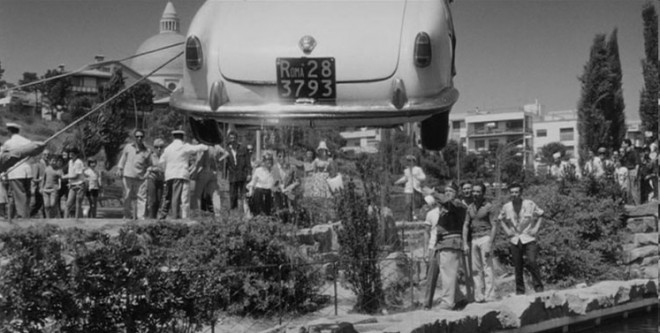“All fantasy is political, and all politics are fantasy.” — del Toro
Murky allegory conjoining reality and fairy-tale fantasy, set in Spain in 1944. The Spanish Civil War having been lost to the fascists, guerillas still resist.
A cartoonish film this, as befits the maker of Blade II (2002) and Hellboy (2004). Visually, it is one batch of clichés after another. Above all, it is boring and hollow, offering little insight into Franco’s Spain at the point that other fascists elsewhere in Europe were being defeated by the Allied Forces. Early on, Mexico’s del Toro establishes the level of the film’s political sophistication. Eleven-year-old Ofelia, the frightened protagonist, extends her left hand to her wicked fascist stepfather/Captain, at which point he curtly corrects her: “The other hand”—that is to say, the right one, not the left. Time to groan.
Bewilderingly, the only point on which del Toro can acknowledge and embrace Ofelia’s gender is her sexuality: a flash of thigh in the bathroom. Otherwise, some incapacity or perversity afflicts del Toro on this score; he cannot or won’t imagine his lead character according to her own gender.
The film ends in a mess of mumbo-jumbo. There have been much better films about Franco’s Spain. Highly praised in many quarters, del Toro’s film, alas, adds up to very little.
